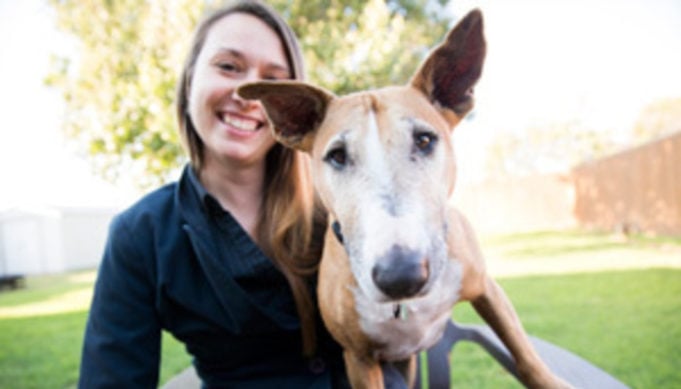A behavioral scientist working with therapy dogs suggests that canines may help children with autism better complete their tasks.
Alexandra Protopopova is a behavioral analyst and assistant professor in companion and animal science at Texas Tech University’s Department of Animal & Food Sciences.
Her team’s research uses therapy dogs as a reward which allows students to complete certain academic tasks. If the task is completed, the student is allowed to spend time with the dog. The hope is that the hope for more future interactions is enough to motivate the children to keep completing their tasks.
While this is a reward-based system, there is a secondary component involved; the dogs may help alleviate stress. So what might be happening is that the dogs create a happier and more relaxed environment for the children to thrive in while they complete their academic sessions.
RELATED: Dogs Now Help Treat Cancer in Kids
What is Autism Spectrum Disorder?
Autism spectrum disorder (ASD) has many types. It is characterized by deficits in social interaction and communication, restricted or repetitive behavior, cognitive delays and/or sensory issues.
Due to these deficits and restrictions, children on the autism spectrum have a difficult time performing and completing tasks with the same speed or in the same way as their peers.
Research has shown that getting children with ASD to complete tasks is usually successful when introducing a reward-based system. But the opportunity for reward does not always result in completed tasks.
Protopopova is a known expert in the field of dog behavior. She has done other studies looking at the adoptability of dogs in shelters, and has devised programs to get them adopted with more success.
She has also studied the interactions of dogs and children with ASD.
ALSO READ: Science on Therapy Dogs for Depression – Fact or Fiction?
A Look at Dogs for Help
Protopopova says the methods and philosophies of dog behavior is, at the core, the same in as it is in children. This connection is what makes her research interesting and promising.
She says that a toy or iPad or other material item used as reward may get boring to the child over time. But with a dog, the opposite effect is observed; this is due to the emotional bond formed by the child and the dog. This serves to increase the quality of the reward over time.

According to the researcher, social behavior and interaction is a component of ASD which is often neglected in the studies conducted toward finding methods to improve the condition. But there is evidence that dogs and other animals may enhance the social connection which suffers in children affected with ASD.
RELATED: Study Shows Kids With Dogs Are Less Stressed
Details of the Study
The effectiveness of using dogs as rewards was measured in two different ways; the stress levels were measured through saliva testing, and rate of work done by children was carefully measured.
Each child was given individual tasks which they were also learning in school or at home.
In one control condition, children were rewarded only with praise for completing their academic tasks. In a secondary control group, children were rewarded with material items.
Then, two additional control conditions were created using therapy dogs. In one group, the dogs would be presented only after the work was completed. In the second group, the dog was continuously present throughout the completion of the work.
The two ineffective methods were shown to be the system with no rewards and the system in which the dog was constantly present.
The two effective methods were those which presented an award after the work had been completed.
The most effective method was the one rewarding children with dogs.
Initial Positive Results
One family involved in the original study actually went out and adopted a dog for their child, thanks to the positive results indicated by the research.
Protopopova was happy with this, saying that instead of just providing statistical and hypothetical data (which isn’t very helpful to affected people), this study can actually give participating families some answers for what might help improve the health and happiness of their affected children.
This study was just the first of more to come. The next study will be larger (using at least 30 children) and will hone in on more details, such as which children in which environments could benefit from certain methods.
READ NEXT: 10 Best Books for Dog Owners with Kids













